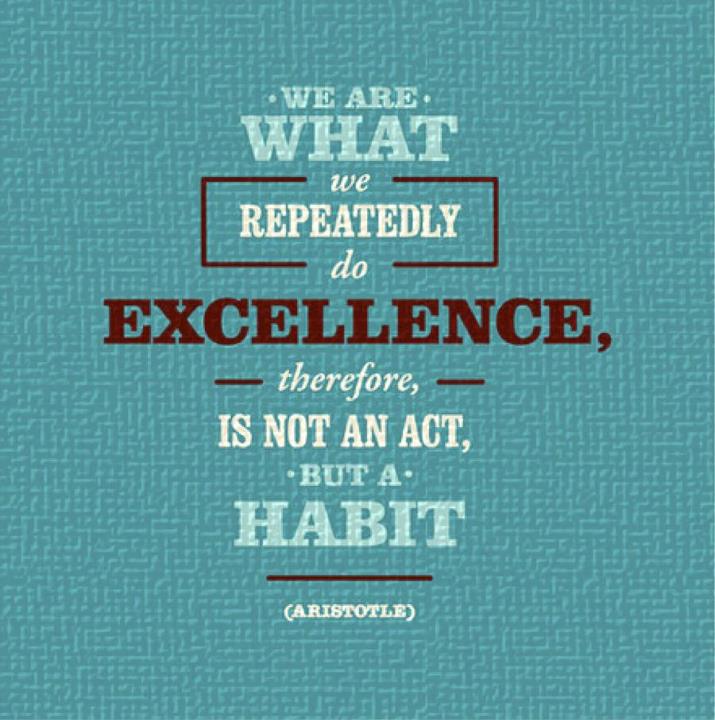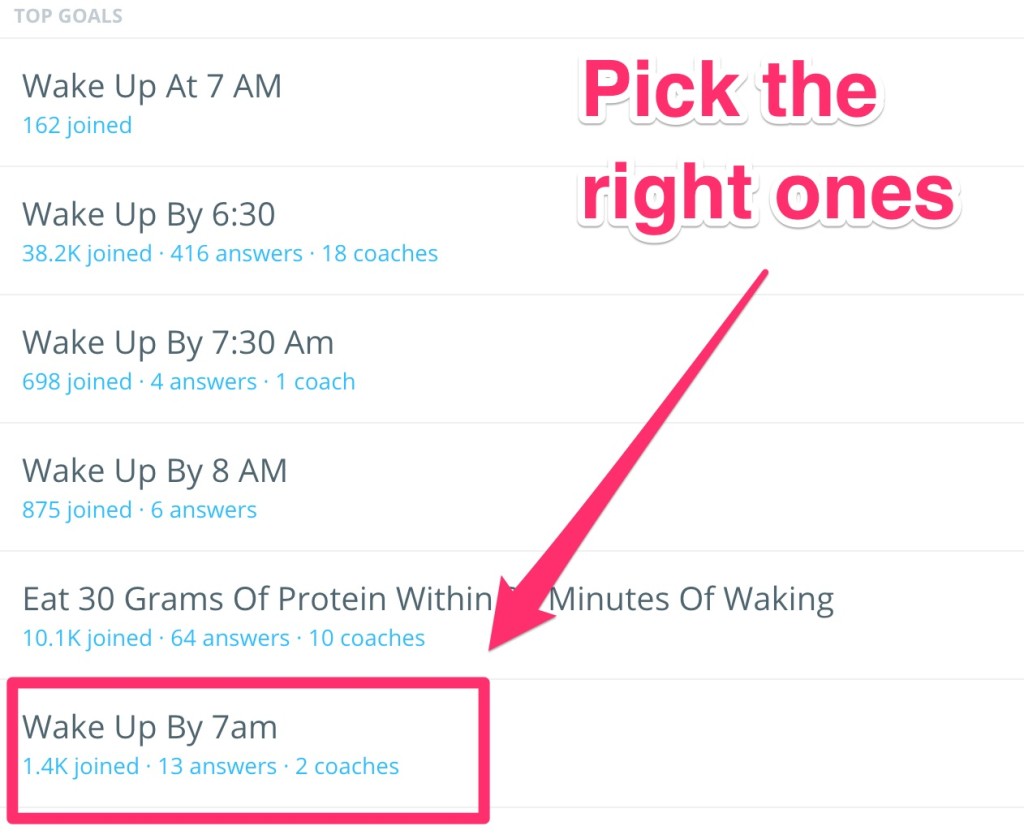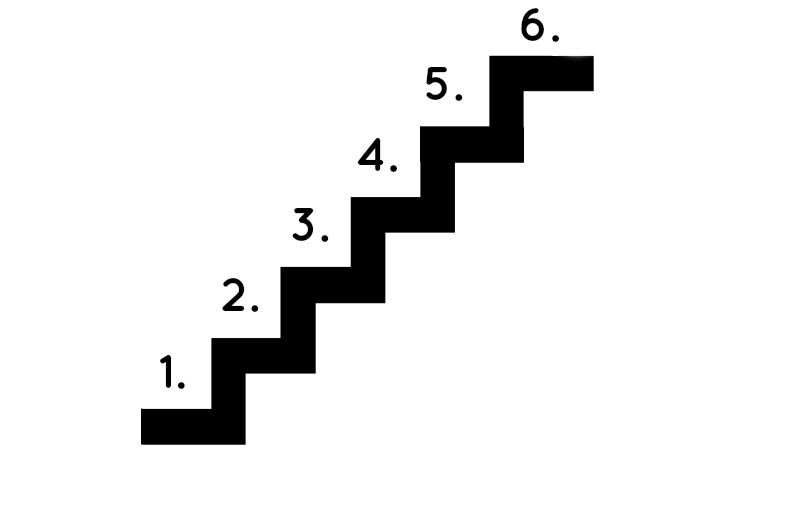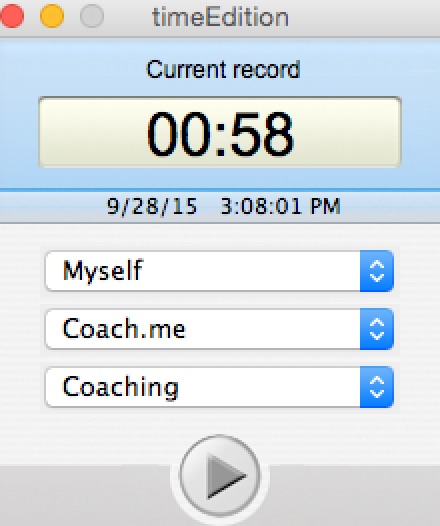What’s the secret of the world’s most successful people?
They started in the same conditions as you and me (even worse ones, in many cases).
Their day has as many hours as yours or mine.
And they surely don’t have superhuman strength or energy.
What is it then, that separates them from you and me – and how can you close that gap? The answer is daily routines.
The Story of a Weird Dinner
This story paints a great picture of what it takes to be extraordinarily successful.
When Warren Buffett and Bill Gates met for the first time, Bill invited Warren over for dinner at his house.

So there they were, Warren and Bill, sitting at the same table.
The two richest people in the world, surrounded by gravy, turkey, and Bill’s parents.
Can you imagine the scene?
Eventually, Bill’s Dad asks the two of them an interesting question:
“What was the most important ingredient to their success?”
Of course they both have an answer.
Bill wants to go first. But so does Warren.
Simultaneously, they open their mouths and say:
“My focus. My laser focus is the reason for my enormous wealth.”
And it’s not just these two. Whether you look at Oprah, Will Smith, Macklemore, Jerry Seinfeld or Barack Obama, you’ll find all of them eventually developed the ability of great focus.
Albert Einstein once said: “It’s not that I’m so smart, it’s just that I stay with problems longer than anyone else.”
Focus and persistence are intertwined.
So how can you become super-focused?
I’m glad you asked!
Before we process, take a few minutes to watch this video to learn about the 12 morning routine habits of the world's most successful people.
A Daily Routine – The Key to Laser Focus
When trying to emulate successful people, most people look for particular habits they all share.
That becomes tougher and tougher, the more successful people you look at. Some of them sleep 4 hours each night and work 16 hours a day. Others sleep 12 hours each night and rest a lot.
The truth is, there are no particular habits, that make people successful. There are only habits.
The habits of the richest people in the world, are any habits.
Think about it. A habit is, by definition, an automatic behavior. It frees your mind from having to think. The more good habits you develop, the more time and energy you have left to spend on moving forward with important things.
So what Bill and Warren really meant when they said “focus” are the habits they acquired to create a daily routine that maximizes their time and energy to focus on important aspects of their business.

It doesn’t matter whether you always get up at 6 am or 8 am. Whether you always work in 2 hour blocks or always in 25 minute blocks. Whether you always have oatmeal for breakfast or always scrambled eggs.
As long as you always do it, it’s part of creating your daily routine, and therefore, helps you become more successful.
7 Steps to Finding Your Own Daily Routine
There are of course a few steps you can take towards creating your own daily routine, simply by developing a few meta-habits first. Meta-habits are habits that help you form habits.
For example: If you want to work 10 hours a day, which is a lot, and be productive at the same time, you could jump right into working 10 hours a day and probably fail after a week.
By using meta-habits, you would first create the habits that enable you to work 10 hours a day, and then pick up the actual habit.
That could be habits like sleeping 9 hours per night, eating at least 2,000 calories each day, exercising every day, taking a walk each evening, and so on, to make sure you actually have the energy to work that much.
Here are 7 good meta-habits to help you create a daily routine that you can repeat day in and day out. This way, you too, can maximize focus on important work to become successful, no matter how you personally define success.
See more of what I have written about the principles of daily routines and how you can incorporate your own daily routines without failure: HERE
Meta-Habit 1: Track your current habits.
“Know thyself.” is an old, Greek aphorism, used by many Stoic prophets to express that progress always follows observation.
In order to make improvements in your daily routine and see which habits work well for you, and which don’t, you must first track your habits.
This comes in 2 phases: taking stock of your current habits, and then continuously monitoring current and future habits, that you want to develop.
Phase 1: Take stock of current habits
To take stock of all of your current habits, write down what a typical day looks like for you with times. Here’s an example:
Morning activities
Get home from work
Go through the list and mark your good habits, and bad habits.
Morning activities
Get home from work
This is a good exercise, since it let’s you see what you’re doing right already (which is plenty, in this case), but also highlights a few areas you could improve.
Once you know what habits you need to let go of and replace with better habits, you can then proceed to track them to improve your daily routine step by step.
Phase 2: Start continuously monitoring current and future habits
The best way to track your habits on an ongoing basis is by using an app. I’ve talked about coach.me before, and it’s still one of the easiest ways to do this.
Here’s how you can use the app:
Go to coach.me and sign up, the app is free to use for Android and iOS devices, and can also be used on desktop via the web browser.
Once you’re signed up, you are redirected to your dashboard. From there, just click the plus symbol to add habits:

Search for all your current good habits and put them on to your dashboard, for example wake up at 7 am:

You can then set reminders, how often you want to achieve that habit (set it to daily), and even hire a coach for each specific habit.
Pro tip: For each bad habit there is a “no X” version, so for example if you’re currently smoking, add no smoking to your dashboard to track progress on removing that bad habit as well.
Now, at the end of each day, you can simply go to your dashboard and check into each habit you did and create a streak of all the things you want to be part of your daily routine.
Pro tip: Do the check-ins on your phone, if you like the app. You can just swipe right on each habit on your dashboard to check in, making the process faster.
Let coach.me be your guide for habit tracking from now on and use it to create new good habits and let go of bad ones.
Meta-Habit 2: Use a calendar.
Everyone has a calendar. The question is, are you actually using yours the right way?
Modern calendars are overloaded with functions no one needs.
All the reminders, invitations, location-functions and URL attachments are nice and they can be useful.
Yet the ancient Romans didn’t expect any of those when they came up with the word calendarium, which meant “register”.
Remember that a calendar is meant for you to register and keep track of appointments and commitments.
We often think successful people never have time because they’re always busy working. This is not true. They just fiercely protect their time.
Instead of just putting appointments with other people in your calendar, create appointments with yourself and map out all of your time.

Block several hours at once to get big chunks of work done, and be sure to set a starting and end point for your daily routine.
For example, if you want to become a writer, be sure to schedule writing early in the morning and also set a block at night to review what you will write about the next day.
This brings me to meta-habit number 3:
Meta-Habit 3: Set an alarm in the morning AND at night.
A good daily routine hinges on it’s beginning and end points. Your routine doesn’t have to take up the entire day, just a part of it.
But if you don’t mark the start and end of it, it will never happen.
Your morning alarm can mark the time of your waking up and the start of your morning routine, if you choose to have one (highly recommended, see meta-habit 4), but it could also be set a little later, to mark the start of your actual work day.
For example, if you want to give yourself a buffer between 8 and 9 am before starting work and really getting into your daily routine, set an alarm not only when you want to wake up, but also at 9 am.
The alarm at night serves as another trigger to wrap up your day and start to wind down. I know from personal experience that it’s easy to get worked up and wanting to work longer at night, just because you’re on a roll.
That often results in neglecting household chores, not being tired when you go to bed and a lack of preparation for the next day.
You’d be better off with a proper evening routine (see meta-habit 5), that gives your brain and body a chance to calm down and also helps you set yourself up for a successful tomorrow.
Meta-Habit 4: Follow a morning routine.
Maybe you’ve heard the saying: The first hour of your day determines the rest of it.
It’s true that if our mornings are chaotic and we rush around, it’s very hard for our mind to get in the zone during the rest of the day.
You’ll constantly feel like you’re trying to catch up to a day that you already started being behind.
A morning routine will take care of that.
If you want to find out more about creating energizing morning routines there is even a books for that: Wake Up Successful
It is a 6-step routine that you can customize to make it work for you, no matter whether you have 60 minutes each morning, or just 6.
This routine uses the concept of habit stacking and an acronym called S.A.V.E.R.S.
Here’s what S.A.V.E.R.S. stands for:

Silence: Practice a form of silence in the morning, such as meditation, or just sitting in quiet. This will help you calm down before the potentially hectic rest of the day begins.
Affirmations: Have a little, but powerful mantra you can recite to yourself in the morning. This should include what you want out of life, why you want it, and what you’ll commit to doing to get there.
Visualization: Visualizing your tasks before you actually do them will make it more likely for you to follow through on what you set out to do. You could also use this time to visualize the life of your dreams and use it as a motivational tool.
Exercise: You don’t have to do a huge workout, but you definitely want to get some blood flowing in the mornings. A set of pushups, a short run around the block, or even just a walk can work wonders.
Reading: Each day you should make some time for personal growth and for that reading daily is essential. This can be 30 minutes or a chapter in a book, but even as little as one page can provide you with some valuable insight.
Scribing: Journaling is also a way of tracking your habits. You could write down your goals for the day, what you did well the day before, or what needs improvement, or simply come up with 3 things you are grateful for.
Customize this routine however you need, but make sure it leads right into the work part of your daily routine.
Meta-Habit 5: Follow an evening routine.
An evening routine is just as important as a morning routine. One starts your day the right way, the other ends it properly.
You have to realize that any great day starts the night before.
For example, if you decide to do the Miracle Morning routine, but don’t accompany it with a fixed bedtime, how will you make it a habit?
You might stay up way too late, oversleep and then not have time to do your morning routine.
Here are 5 parts of a good evening routine:
Part 1: Turn electronics off
No matter what you do at work, chances are it includes a lot of looking at screens. Studies have shown that the blue light from screens suppresses your melatonin production (which is a sleep hormone that makes you tired).
By turning off your electronics at least 1-2 hours before bed you give your body some time to produce melatonin and actually get sleepy.
Pro tip: There will always be days when you have to work longer. Use f.lux to naturally adjust the color of your screen. It’s a free software that will make your screen a more orange/red color to resemble a sunset at night – pretty cool and it works!
Part 2: Do household chores
If you give yourself 2 hours without electronics, you’ll probably instantly wonder what to do with that time.
The answer: Cleaning!
Washing dishes (you should do it by hand on purpose sometimes) can be a very relaxing activity.
Setting up your bed or organizing your living-room have soothing qualities as well, plus they save you plenty of time the next day.
Part 3: Plan the next day
Apart from cleaning you should also plan your work for the next day. This doesn’t have to be big, it could be as simple as picking one key task for each day ahead of time.
Just knowing what you will do in advance will make it much more likely for you to follow through on your intentions, because when you start debating what to do in the moment you lose time and energy.
Part 4: Go to bed at the same time each day
This part is the key. Your body loves routine. Once you figured out how much sleep you need, also allow yourself to get that amount every night.
Even if you know you need to sleep 8 hours, sleeping from 12 am to 8 am one day and then from 9 pm to 5 am the next will very likely make you feel groggy.
Again, set an alarm for this time at night to remind yourself to go to bed on time. This might be hard for the first few days, but after a week you’ll enjoy your new sleep routine and see the benefits.
Part 5: Spend time with your loved ones
It’s easy to forget friends and family over all the changes we try to make in our lives. But they are an essential part of our happiness.
Since we’re often busy during the day a family dinner or playing cards with close friends can be a great way to connect in the evening.
If you have a partner you definitely want to talk to them for a little bit before going to bed and maybe catch up on the happenings of the day.
So combine these parts to create your own, customized evening routine, to give your nights some structure and help define the end of your daily routine.
Meta-Habit 6: Treat weekends like weekdays.
For any habit, if you’re committed to making it work, you’ll eventually have to live it on weekends as well.
A habit is not a habit 5 days of the week, it’s only a habit if you do it on all 7, come hell or high water.
So even if your daily routine still varies, try to keep the frame around it, your morning and evening routine, intact at all times.
As with any habit, it’s best to start a little slower and then progress with time.
For example, if you want to wake up at 6 am every day, start by doing it during the week and giving yourself 1-2 hours extra on the weekend.
Then, as you get more used to waking up early 5 days out of 7, transition into 6 days, then 7.
Ignoring weekends doesn’t have to mean never relaxing and always working. Even the most ambitious and successful people have to recharge sometimes.
Instead they make sure they find some time of leisure and recovery every day (and also plan that time in their calendar).
A positive side effect of this meta-habit is that you’re less likely to get burned out and you’ll avoid the pitfall of living for the weekend, where all you do on Monday is hope for Friday to come around soon.
You’ll balance your life and realize that a life that only feels good on weekends probably won’t get you where you want to go.
So to get your daily routine to really become a daily thing, ignore weekends and in this way give every single day of your life the respect it deserves.
Meta-Habit 7: Track your time.
Tracking your time is similar to tracking your habits. Seeing where and how you spend your time will give you a good feeling of where you’re wasteful with it and where you’re being really efficient already.
A great tool to track time both on Mac and Windows is TimeEdition. You can find extensive instructions on how to set it up in this post (step 11).

What makes tracking your time really easy is structuring your work time into blocks. As you might know, most of my writing is done between 8 and 10 am. Having that block set at the same time each day makes it easy for me to keep track of the hours.
You could either track your time spent doing specific habits, like me, or just take a more general approach and track work time in general.
Did you know Warren Buffett spends 5 hours of his day reading? It makes up 80% of his daily routine. He’s not on the computer, not on his phone and he doesn’t have meetings.
Highly successful people don’t necessarily work themselves to the bone, obsessing about every detail of their business.
They know their strengths (because they track their habits) and then spend as much time as possible using them.
So when you’re good at something, and enjoy doing it, make it a habit and a big part of your daily routine.
Know that 4 hours of focused writing will get you much further in life than 12 hours spent “working”, which include pointless meetings, conversations, mundane tasks and lots of coffee breaks.
Final Thoughts on How to Build a Great Daily Routine
Where will your daily routine lead you? To financial freedom? Your own business? A happy family?
Maybe you’ll also have dinner with Warren Buffett and Bill Gates, who knows.
This was a lot, so let’s summarize the 7 meta-habits again, that will help you form your own daily routine for success:
Meta-Habit #1: Take stock of your current habits by writing down your typical day. Then continuously monitor all of them using a habit tracking tool like coach.me.
Meta-Habit #2: Use a calendar to schedule appointments with yourself and map out the use of all your time.
Meta-Habit #3: Set an alarm both in the morning and at night to mark the start and end of your daily routine.
Meta-Habit #4: Create a morning routine to lead yourself right into the work part of your daily routine each day.
Meta-Habit #5: Remember the 5 parts of an evening routine to set yourself up for a successful day the night before.
Meta-Habit #6: Treat weekends like weekdays to really make your routine stick long-term.
Meta-Habit #7: Track your time in structured blocks to make sure you’re using your strengths as much as possible.
What will your daily routine look like? What will you use these meta-habits for?
And if you're looking for more resources to help you build a great daily routine, check out these blog posts:
- 15 Habits to Build a Healthy Daily Workout Routine
- 71 Morning Routine Ideas to Successfully Start Your Day
- How to Stick to a Daily Routine (7 Principles to Consider)
Finally, if you want the perfect morning routine, then check out this seven-step process for creating a morning routine that will become a vital part of your daily life.)



It’s all habit are good. m also do it daily in my life. m also daily think about next day and plan. And next day plan think , not a big deal it’s do every person daily who is Beggar or any rich man. A Beggars think every night that where will i Postulate tomorrow So I should get something to eat.this speech is all line are good but give like this type advice, all is rubbish.Beggar is also wake up early morning and approximately 5 o’clock. on 7 o’clock wake up not is a big matter.these all habits are also use in my life daily. i also wake up at 7 AM then check e-mails,facebook & what’s app then get ready for the office at 8 PM then take breakfast & go to my office then return my home at 6:30 PM And go to GYM 7 PM to 9 PM Then retun at my home & take dinner 10 Pm. Talk with mother and sleep at 11 PM.
Great post!
A daily routine is essential. Without it I find many of us drift through the day with little to no purpose. There isn’t a time or a place where a daily routine isn’t applicable.
When I write down what I want planned for the day, I get so much more done. If you are reading this and thinking “yeah that’s only for millionaires not for me,” you are wrong! Everyone including you can benefit from a routine.
Try it for a week if you don’t believe me. I talk about topics like this on my blog which has motivated me to help people achieve their true potential. So far I am loving it.
I go throughout 7 steps to finding your own daily routine,it is much interested and I enjoyed much the reading. It is more helpful and thanks much for it.